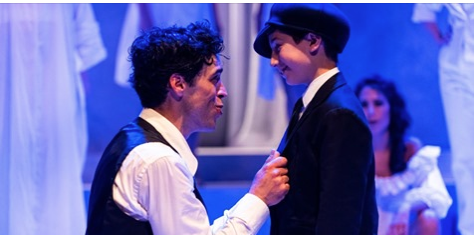
by Second Generation Theatre | Jun 26, 2019 | News, Press, Uncategorized
WATCH MAX’s INTERVIEW HERE BUFFALO, N.Y. (WKBW-TV) — Max Goldhirsch was a typical 11 year-old until he auditioned for a part in a show. He wowed the director and landed a part in the Second Generation Theatre Company production of “Nine”, now playing at Shea’s Smith...
by Second Generation Theatre | Jun 19, 2019 | News, Uncategorized
Nine is All You Could Want at Second Generation A musical for a Golden Age of Buffalo Theater NINE AT SECOND GENERATION By Anthony Chase When I began my career as a drama critic, I was mindful of several maxims. Critique what you see, not what you wish you could be...

by Second Generation Theatre | Jun 13, 2019 | News, Press, Uncategorized
THE BUFFALO NEWS: Melinda Miller As either the last production of the main theater season or the first of the summer shows, the musical “Nine” is making its regional premiere this week in Shea’s Smith Theatre, nearly 40 years after it took Broadway...



